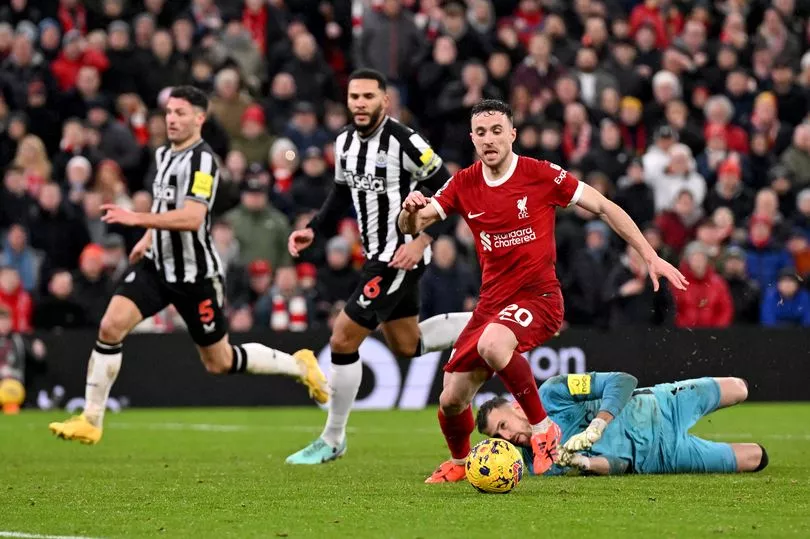Liverpool have had their fair share of refereeing controversies this season, but now the simple case of Diogo Jota is back in the spotlight. In an unusual turn of events, former Premier League referee Mark Clattenburg has publicly criticized current referee Anthony Taylor for his inconsistent penalty decisions during the recent match between Liverpool and Nottingham Forest.
Clattenburg’s criticism comes after Nottingham Forest lost 3-2 to Newcastle in a tight game at the City Ground, with Bruno Guimaras scoring the decisive goal midway through the second half. A brawl broke out after Forest’s Taiwo Avonini, formerly of Liverpool, was tackled in the penalty area by Newcastle goalkeeper Martin Dubravka.
Despite the actual contact, Taylor stopped Forest’s penalty kick, his decision not challenged by VAR, much to the outrage of Forest manager Nuno Espirito Santo. Clattenburg, who retired as a Premier League referee in 2017, believes Forest have a stronger case for a penalty than Liverpool did in a similar incident involving Newcastle goalkeeper Diogo Jota last month. “Liverpool were awarded a penalty at Anfield last month when Diogo Iotta was adjudged to have been tripped by Newcastle’s Martin Dubravka,” he wrote in his Daily Mail column, adding: “The decision was taken in real time.”
Nottingham Forest’s Anthony Taylor is denied a penalty kick by referee Taiwo Awonyi after being brought down by the same goalkeeper. It was 2-2 at the time and Forest coach Nuno Espirito Santo was right when he said it was game time.
Avioni had a bigger business than Jota. Even though Dubravka raised his right hand to stop him from standing, Orman still had nothing to gain.Adding fuel to the fire, Clattenburg also berated VAR Tony Harrington for not stepping in and allowing Taylor to correct his mistake.
He offered his condolences to Forest fans who were angered by what he saw as biased treatment in favor of the Premier League’s top teams. The disallowed penalty was another controversial decision this Premier League season and cost Forest dearly as Newcastle’s winning goal came three minutes later.
Espirito Santo expressed his disappointment after the match. “It was a clear penalty. I saw it over and over again. For me it was a clear penalty.” He then spoke about VAR’s role, saying: “I think Anthony Taylor would have been behind and maybe he didn’t have a clear understanding of the incident, but I think it would have been clear if VAR had had the opportunity to check.”
So I don’t understand this decision,” he said. The incident has once again highlighted the ongoing debate in the Premier League over VAR and refereeing decisions. Although many question their consistency and loyalty, it is important to remember that Clattenburg are Newcastle fans.
This is not a Taylor problem, it is a VAR problem. Yes, it’s not good when similar decisions go in different directions under the watch of the same referee. But Espirito Santo is right to recognize that referees must always make split-second decisions and not best judgement.
The real question is why didn’t VAR intervene?
This would have ensured that Liverpool and Nottingham Forest were treated equally to get the right result. But rather than improving consistency, the system added a new layer to the tired debate about thresholds for intervention and what is “clear and obvious.”





























